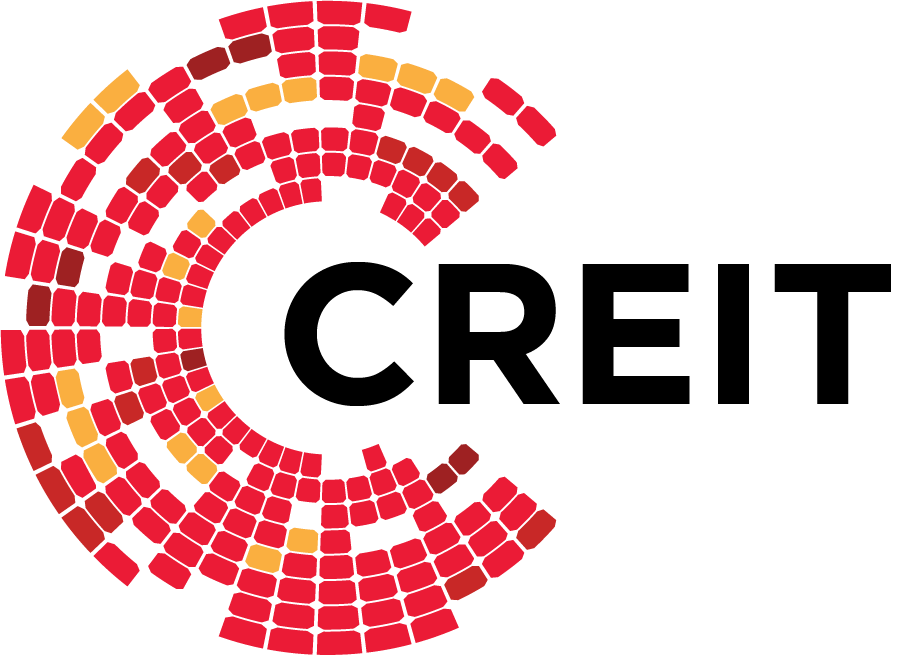Picture this: As an entrepreneur, your passion lies in transforming ideas into reality. But have you considered how well your venture aligns with the evolving expectations of socially responsible investors? In an era where technology and innovation are the driving forces behind global progress, the spotlight on environmental, social, and governance (ESG) compliance has never been brighter.
For tech entrepreneurs seeking not only financial success but also a positive impact on society, understanding and embracing ESG principles is no longer an option — it's a necessity. As socially responsible investors increasingly shift their focus toward companies that prioritize sustainability, ethical practices, and community well-being, the importance of ESG compliance cannot be overstated.
In this blog post, we will discuss what ESG compliance is, exploring its key components and explaining why it has become a pivotal factor for tech ventures aiming to thrive in the modern business landscape.
What is Environmental, Social, and Governance (ESG)?
Before anything else, let's first start with the fundamentals. ESG represents a comprehensive framework that evaluates a company's performance and impact in Environment, Social, and Governance matters. It depicts a triad of principles guiding the following:
- Businesses toward a more sustainable and responsible future; and
- Investors toward businesses that prioritize sustainability, social responsibility, and ethical governance practices.
Environmental criteria assess a company's commitment to ecological sustainability, focusing on its impact on the planet, including the carbon footprint, resource usage, and commitment to renewable energy. Social considerations, on the other hand, delve into the company's relationships with its employees, communities, and broader society, encompassing diversity, labor practices, and community engagement. Finally, governance refers to the internal structures and practices that govern a company, such as its leadership, transparency, and adherence to ethical standards.
What is ESG Compliance?
Simply, ESG compliance touches on a company's commitment to adhering to the ESG principles and standards that are relevant to its industry and operations. It goes beyond mere rhetoric, embodying a company's dedication to responsible business practices that do not only focus on profit margins. Furthermore, these guidelines aim to create long-term, sustainable value for both the business and its broader stakeholders.
For tech entrepreneurs, ESG compliance is a roadmap for building businesses that are not only financially viable but also socially and environmentally conscious. Moreover, ensuring ESG compliance not only aligns their ventures with responsible business practices; it also positions them favorably in the eyes of socially responsible investors who pay special attention to sustainable and ethical investment opportunities.
By adhering to ESG standards, businesses can mitigate risks, enhance their reputation, and contribute positively to the global community — all while attracting investors who put sustainability at the top of their investment lists and financial portfolios.

Why Consider ESG Compliance Before Making Investment Decisions
Now, the question is: Why should tech entrepreneurs, especially those representing socially responsible investors, consider ESG compliance when making crucial investment decisions?
Today's investors are increasingly recognizing that sustainable, socially responsible business practices are not just morally commendable but also financially astute. By factoring in ESG criteria, investors can align their portfolios with companies that demonstrate a commitment to mitigating risks associated with environmental harm, social injustice, and weak corporate governance.
Here are several reasons socially responsible investors should prioritize ESG compliance in their investment strategies:
1. Environmental and Social Risk Mitigation
Climate change and environmental degradation pose significant risks to businesses. Companies with robust ESG practices are better equipped to navigate regulatory changes, resource scarcity, and the physical impacts of environmental issues.
Likewise, companies addressing social issues such as labor practices, diversity, and community relations are less likely to face reputational damage, legal challenges, or consumer backlash. This proactive approach reduces the overall risk profile of the investment.
2. Long-Term Sustainability
ESG compliance encourages businesses to adopt sustainable practices, which is vital for long-term success. By focusing on environmental conservation, ethical labor practices, and transparent governance, companies can position themselves as resilient entities capable of weathering market fluctuations and industry challenges.
3. Regulatory Compliance and Future-Proofing
As governments worldwide tighten regulations related to environmental protection, labor standards, and corporate governance, companies that proactively embrace ESG compliance are capable of adapting and thriving in evolving regulatory landscapes. This future-proofing aspect is vital for sustained growth and operational continuity.
4. Access to Capital
ESG compliance is becoming a key criterion for accessing capital, with many investors and financial institutions integrating ESG considerations into their decision-making processes. Companies that meet ESG standards may find it easier to secure funding, lower their cost of capital, and access a broader range of financing options.
5. Innovation and Operational Efficiency
By placing sustainability and social responsibility at top, businesses are incentivized to explore and adopt cutting-edge technologies and efficient operational practices. This commitment to continuous improvement not only boosts an organization's competitive edge but also establishes authority as a leader in the market.
What are the Pros and Cons of ESG Investing?
Having familiarized yourself with the reasons you should consider ESG compliance before making investment decisions; it’s also important to understand both the benefits and drawbacks of ESG investing. These will help you make informed decisions based on your values, risk tolerance, and long-term goals.
Pros of ESG Investing
- Sustainable Returns: ESG-focused companies are often better positioned for long-term success, as they are more likely to manage environmental and social risks effectively, leading to sustainable financial performance.
- Enhanced Brand Value: Investing in companies with positive ESG performance contributes to enhanced brand value and reputation, fostering customer loyalty and stakeholder trust.
- Stakeholder Engagement: ESG investing emphasizes positive relationships with a broad range of stakeholders, including employees, customers, suppliers, and local communities, creating a more sustainable and supportive business ecosystem.
- Alignment with Sustainable Development Goals (SDGs): ESG investing aligns with the global push toward achieving sustainable development goals, contributing to broader efforts to address social and environmental challenges on a global scale.
- Global Reputation and Access to Markets: ESG compliance improves a company's global reputation, potentially facilitating access to international markets and partnerships by meeting the ethical and sustainability expectations of a broader audience.
Cons of ESG Investing
- Greenwashing Concerns: Some companies may engage in greenwashing, where they exaggerate or falsely claim their commitment to ESG principles to attract investors without making substantial changes.
- Short-Term Performance Volatility: ESG-focused investments may experience short-term volatility as market perceptions of ESG factors evolve. This can be a concern for investors seeking immediate returns.
- Subjectivity in Ratings: ESG ratings can be subjective and vary among rating agencies, leading to potential inconsistencies in evaluating a company's ESG performance.
- Limited Standardization: The lack of standardized ESG metrics and reporting frameworks makes it challenging for investors to compare and assess companies consistently across different industries.
- Market Skepticism: Some investors remain skeptical about the material impact of ESG factors on financial performance, viewing them as subjective or not directly correlated with investment returns.

A Closer Look at CREIT's Clean Energy Portfolio through the Lens of ESG Principles
In the pursuit of a sustainable tomorrow, Citicore Energy REIT Corp. (CREIT) stands at the forefront with its commitment to integrate ESG principles into its clean energy portfolio. By carefully aligning its mission with these core values, CREIT's clean energy initiatives transcend conventional business models, embodying a forward-thinking approach that underscores the company's dedication to responsible and impactful investments.
As the Philippines' pioneering renewable energy Real Estate Investment Trust (REIT), CREIT proudly presents a clean and green portfolio consisting of seven assets. This innovative approach to renewable energy encompasses one (1) solar asset and fourteen (8) strategically leased land properties designed for solar operators. Collectively, this portfolio boasts of an impressive gross installed solar generation capacity of 145MWdc, establishing CREIT as a leader in the country's renewable energy landscape.
Commitment to Environmental Stability
The commitment to environmental sustainability is vividly evident in CREIT's solar-centric approach. All solar assets are strategically located in regions with high irradiation, ranging between c.4.7 – 5.5 kWh/m2/day, as highlighted by the National Renewable Energy Laboratory's irradiation study for the Philippines.
This intentional placement highlights CREIT's dedication to harnessing optimal solar energy, minimizing environmental impact, and contributing to the nation's transition toward a greener future.
Strong Focus on Social Responsibility
Aside from the technical aspects of its clean energy ventures, CREIT places considerable emphasis on social responsibility. By situating assets within close proximity to key metropolitan areas across the Philippines, CREIT ensures a steady demand for electricity. This strategic approach not only supports urban centers but also signifies a commitment to providing sustainable energy solutions that positively impact local communities and businesses.
Excellence in Governance
Finally, CREIT's governance excellence extends to its innovative Grid Connection Scheme, allowing customers to embed the plant to their site when feasible. This unique method translates to substantial savings on transmission line costs charged by the government.
The financial benefits are two-fold: earned by CREIT through a premium added to bilateral Power Purchase Agreements for cost-efficient energy solutions, and realized by the customers, who ultimately benefit from a lower total PHP per kWh on energy consumption. This transparent and efficient governance framework exemplifies CREIT's commitment to ethical business practices and financial prudence.
Greening the Future — Today and Tomorrow
In navigating CREIT's clean energy portfolio, it becomes evident that the company not only prioritizes profitability but also strategically integrates ESG principles into its core operations. By combining technological innovation, geographical advantage, and a commitment to social and environmental responsibility, CREIT's endeavors exemplify a holistic and sustainable approach to the future of clean energy investments in the Philippines.
Explore the possibilities at CREIT and partner with us in pioneering positive change through sustainable investments; together, we shape a world powered by innovation, responsibility, and environmental stewardship.


